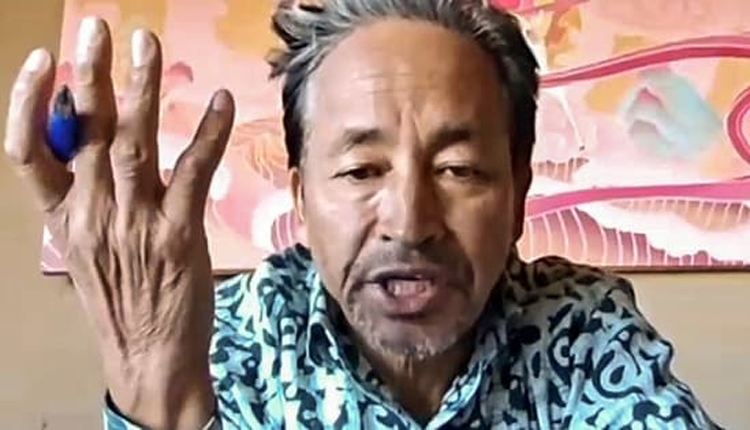Leh: In a poignant cry echoing from the rugged heights of Ladakh to the corridors of power in the national capital, Gitanjali Angmo, wife of renowned educationist and innovator Sonam Wangchuk, has penned a heartfelt letter to President Droupadi Murmu, seeking her husband’s immediate and unconditional release from detention.
The drama unfolded against a backdrop of tragedy: on September 24, violent clashes during protests in Ladakh claimed four lives, prompting authorities to invoke the stringent National Security Act (NSA) against Wangchuk.
Swiftly shifted to Jodhpur Central Jail, the 58-year-old activist — known for his sustainable innovations and building shelter homes for Indian Army jawans – now faces what his wife calls a “strategic blunder” that undermines border unity.
Gitanjali’s missive paints a picture of injustice, with copies sent to Prime Minister Narendra Modi and Home Minister Amit Shah. “Sonam cannot be a threat to anyone, least of all his country,” she writes, vehemently denying his role in the unrest. She reveals he publicly condemned the violence, yet his NGO’s FCRA licence was revoked, and baseless accusations of foreign links were hurled his way.
Over four years, she alleges, the Centre has systematically weakened Ladakh’s autonomy movement.
Denied even a phone call with her husband or updates on his health, Gitanjali invokes the President’s tribal roots: “As a fellow Adivasi, you can better grasp the sentiments of Ladakh’s people.” She extols Sonam as a son of the soil, devoted to serving its “brave warriors” and fostering peaceful coexistence along India’s frontiers. “Such ill-treatment is not just a sin but a folly in fortifying our borders,” she asserts.
As Ladakh simmers, this personal plea spotlights a deeper rift: the quest for Sixth Schedule protections clashing with security concerns. Will the President’s empathy prevail, or will the activist’s fast to death – now in its 20th day – tip the scales? The nation watches, breath held.



Comments are closed.